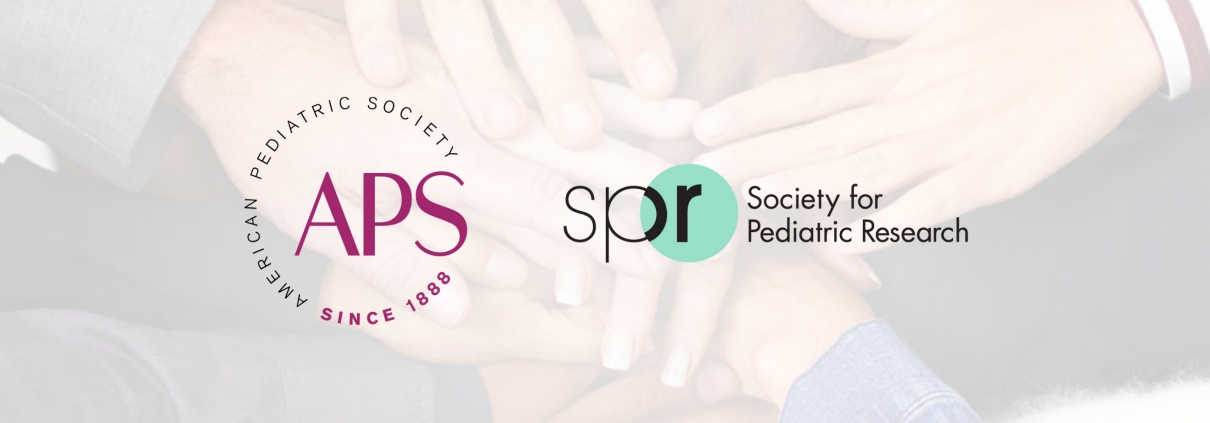Pediatric Policy Council Update
The APS and SPR are members of the Pediatric Policy Council (PPC) which actively advocates for children and academic pediatrics at the federal level. APS representatives to the PPC are Drs. DeWayne Pursley and Jonathan M. Davis; Drs. Joyce Javier and Shetal Shah represent the SPR.
The PPC also includes representatives from the Academic Pediatric Association (APA) and the Association of Medical School Pediatric Department Chairs (AMSPDC). The PPC is based in the Washington DC office of the American Academy of Pediatrics (AAP), who supplies staff and other support.
The latest advocacy developments are summarized by the PPC below
PPC CAPITOL CONNECTION
February 11, 2020
What Matters Now in Washington:
- NIH advocates look to build on recent success, seek $3 billion funding increase in coming year. More…
- A recently released White House budget proposal has outlined steep federal spending cuts, though Congress has rejected such cuts in recent years. More…
- A Trump administration proposal threatens to undermine the integrity of the Medicaid program by allowing states to cap the amount of money they receive from the federal government. More…
- A potential proposal from the White House requiring open science would be a major threat to the financial viability of academic journals. More…
- The Supreme Court will allow the public charge rule to go into effect. More…
- The outcome of litigation to overturn the Affordable Care Act is unlikely to be known for some time after the Supreme Court declined to give the final word. More…
- Nakela Cook will serve as the executive director of PCORI. More…
- An NIH blog discusses efforts to increase diversity of research perspectives among study section reviewers. More…
- PPC authored policy commentaries in Pediatric Research exploring the intersections of child health policy, advocacy, and pediatric research. More…
PPC Joins NIH Supporters to Call for $3B Funding Increase in FY21. In a statement sent to Capitol Hill recently, the PPC and over 200 organizations called on Congress to provide $44.7 billion in funding to the National Institutes of Health (NIH) in Fiscal Year (FY) 2021. The $3 billion funding increase over the current fiscal year would provide for meaningful growth above inflation in the NIH base budget, allowing the biomedical research funder to support promising science across all disciplines. The NIH funding recommendation comes as Congress gears up to begin the annual appropriations process for the coming fiscal year. While broad bipartisan support for the NIH has enabled $11 billion in funding increases over the last five years, a challenging budget environment constrained by tight spending caps will make it more difficult for appropriators to invest in pediatric research priorities, making sustained advocacy for NIH essential. The funding recommendation was developed by the Ad Hoc Group for Medical Research, a broad coalition of organizations dedicated to advocating increased NIH funding, comprised of medical and scientific societies, academic and research organizations, and others.
WHite House Budget Once again Calls for Massive Federal Spending Cuts. In a budget proposal released Monday, President Trump proposed slashing domestic discretionary spending by $40 billion in the coming fiscal year. The proposal includes a $3 billion cut from the NIH’s current funding level and significant cuts at other federal science agencies. The bulk of the proposed cuts to health care spending would come from mandatory spending through the Medicaid program and the Affordable Care Act to the tune of nearly a trillion dollars over 10 years. Despite the troubling implications for pediatric research and child health priorities laid out in the White House spending vision, Congress has ignored the annual White House budget document in recent years when developing its annual spending bills. Already, Senate Budget Committee Chair Mike Enzi (R-Wyo.) has announced he won’t hold a hearing on the proposal.
Medicaid Block Grant Guidance Threatens Access to Care for Families. In late January, the Centers for Medicare and Medicaid Services (CMS) announced a long-anticipated plan allowing states to cap federal funding for parts of their Medicaid programs. Under the guidance, states would be allowed to apply for waivers seeking capped federal funding for low-income adult populations, including parents, in exchange for flexibility to cut certain benefits, restrict eligibility, impose waitlists, and cut physician payment rates. The guidance would fundamentally alter the financing of the Medicaid program by reducing the amount of funding a state receives, threatening the integrity of a program relied upon by nearly 37 million children. A broad range of organizations have called on CMS to rescind the guidance.
Academic Pediatricians Sound the Alarm on Open Science Proposal. The PPC sent a letter Friday to the White House Office of Science and Technology Policy urging it not to move forward with a rumored proposal requiring all journal articles reporting on federally funded research to be made available to the public free of charge immediately. The move would be a departure from current policy, which allows journals 12 months of exclusive publication for subscribers before the articles become freely available to the public. The so-called open science policy raises serious concerns for academic journals, which rely on subscription fees to conduct a rigorous peer review process and disseminate scholarly works. The PPC organizations underscored the vital role of academic journals in the production of high-quality scholarship. The policy has yet to be released.
SCOTUS Lets Public Charge Rule Take Effect. On January 27, the Supreme Court lifted the nationwide injunctions that were preventing the Trump administration’s public charge rule from going into effect. As a result of the Supreme Court’s decision, the Department of Homeland Security will begin to implement the Trump Administration’s public charge final rule on February 24. The final rule expands the definition of what it means to be a public charge, making it harder for immigrants to enter the United States and advance through the immigration process. Under the final rule, an immigrant’s use of certain programs can now be considered to deny entry or permanent legal status in the United States. For the first time, the government will look at an immigrant’s use of the Supplemental Nutrition Assistance Program (SNAP), housing assistance, and for non-pregnant adults—Medicaid. While the Supreme Court ruled on whether or not the nationwide injunction could remain in place, they did not rule on whether or not the public charge rule was legal. The legality of the public charge rule will continue to be argued in courts.
ACA Remains in Limbo after SCOTUS Declines Review. The Affordable Care Act (ACA)’s future remains in limbo after the Supreme Court declined to fast-track review of a December appeals court decision over the law’s legality. In December, the Fifth Circuit Court of Appeals concurred with a lower court that the elimination of the individual mandate penalty by Congress made the provision unconstitutional. However, the appeals court stopped short of agreeing with the lower court’s decision that the entire ACA must therefore fall, instead asking the lower court to determine which parts of the law could stay and which must go. Attorneys general from more than 20 states defending the ACA had asked the High Court to issue a final ruling in the suit quickly to resolve the uncertainty facing individuals nationwide who depend on the ACA for coverage. Despite this, the Supreme Court could still hear the case before the end of its current term in June.
Nakela Cook named Executive Director of PCORI. On January 15, the Patient-Centered Outcomes Research Institute (PCORI) announced Nakela Cook, MD, MPH, would serve as the agency’s next Executive Director. Dr. Cook comes to PCORI from a senior leadership role at the National Heart, Lung, and Blood Institute (NHLBI). The transition comes on the heels of PCORI’s decade-long reauthorization by Congress in December. Dr. Cook will join PCORI on April 15 and take over leadership of PCORI from Interim Executive Director Josephine P. Briggs, MD.
NIH Seeks to Broaden Pool of Reviewers. Efforts are underway at the NIH to increase the range of backgrounds among individuals serving in the peer review process. The NIH Center for Scientific Review (CSR) recently removed the requirement that study sections be composed of at least 50 percent full professors, which CSR believes limited study sections to the perspectives of more senior researchers. The goal is to achieve a balance of perspectives by including a mix of qualified senior, mid-career, and junior scientists on study sections. Read more about the change from NIH CSR Director Dr. Noni Byrnes.
PPC POLICY COMMENTARIES. Members of the PPC have authored commentaries detailing the policy implications of research published in Pediatric Research. You can read these PPC-authored commentaries online:
- Funding for gun violence research: the importance of sustained advocacy by academic pediatricians by Scott Denne, MD, James Baumberger, MPP, and Matthew Mariani

